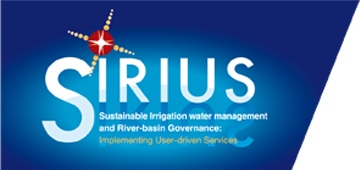Firstly, water management and agriculture have a significant gender dimension, in particular in less industrialized countries. In our Latin American pilot areas, the industrial farms are largely owned by men, while many subsistence farmers are women. Our work will address the needs of both female and male stakeholders and will take into account gender-specific ways to deal with technological tools, knowledge and information products in the development of these. Integrated Water Resources Management includes per definition the consideration of gender. Many studies have shown that:
– Involving both women and men in integrated water resources initiatives can increase project effectiveness;
– Using a gender perspective and ensuring women’s involvement can support environmental sustainability;
– Without specific attention to gender issues, projects can reinforce inequalities and even increase imbalances.
Secondly, New Technologies (NT) can have a significant gender bias (’toys for boys ‘). This aspect will be addressed in the assessment of existing or potential NT bias towards selected social groups (part of WP1 and WP7).



